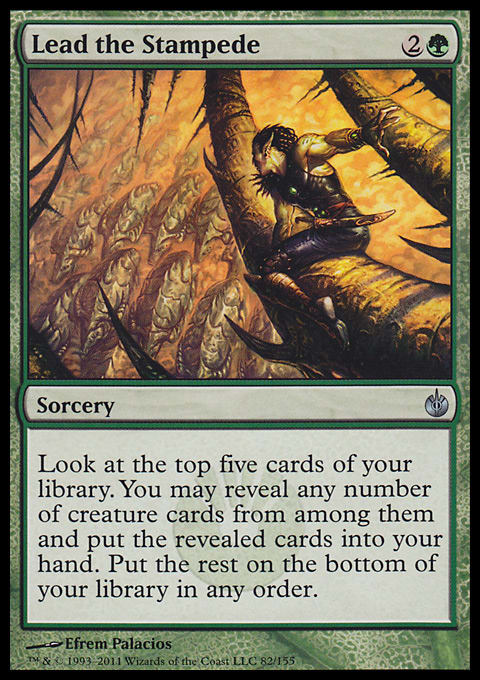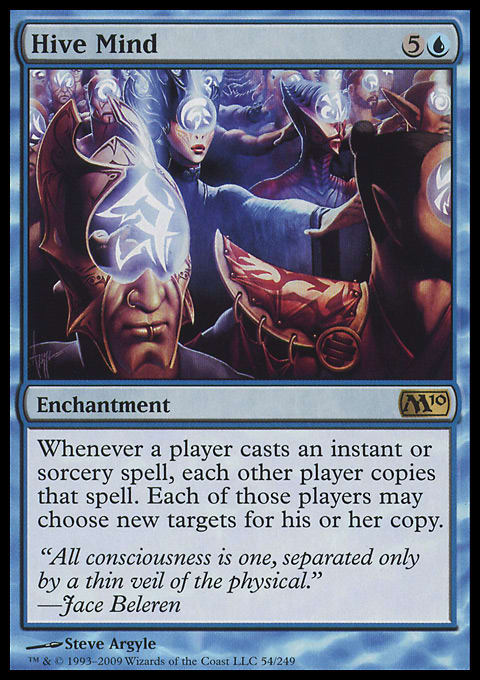Over the past few days, I have been contemplating a way to write a beginner article that would not bore you all to tears but that would still be helpful to the newer trader. As I started jotting down ideas, I realized that I no longer remember the exact ins and outs of first starting; I mean, sure, I know how to trade and what to pick up, but I don’t remember the small struggles of first starting.
I realized the best way to obtain this knowledge again, even some new etiquette, was to talk to a player who recently started delving into the world of trading. Unfortunately, I came to this conclusion too late, and since my editors already have enough work to do on these articles, I thought it best to postpone that idea until next week. While on this train of thought, a new idea spawned, however: What do we as traders do incorrectly?
New players typically have habits that must be kicked before entering—or succeeding in—high-level tournaments. I recall, when I started playing as a child, announcing what I was going to do out loud for my opponent to hear. I was always a kid who liked to work problems out by thinking aloud, and for me, Magic was just a series of problems that needed to be solved, so it only seemed logical to work them out the way I knew how. This is obviously a terrible habit in a game in which a high percentage of the play skill comes from knowing what your opponent is going to do, so with me announcing my lines of play, I was doing myself no favors. This may seem like a simple habit to kick—in fact, it was after a short time—but nuances this are ones we don’t even think about when applying our real-world skills to Magic.
So, what sort of habits do we possess within the trade circles that can be detrimental to our success? Many of these may not even seem to be mistakes at first, but only subtly hurt you in small doses over time. A great example of such a habit was one I picked up when I first started treating the financial Magic market as a job a few years ago. I regularly can be found sitting across the table from many of the dealer’s booths at large events for a number of hours, and in turn, I managed to memorize a large number of buy lists in preparation. While working with vendors, if they had to look a number up from their online buy lists, I would regularly help them in an attempt to save time.
I have realized over time that it is better to allow them to look up their own prices both so they know for the remainder of the weekend and because you may find yourself short-changing yourself. Many vendors prepare lists specially for major events and may increase the prices on cards they are looking to target for the weekend or are running low on stock of, meaning if they are looking up a number, it may be because the number has shifted from their online counterpart. The worst-case scenario is the vendor says a lower number, and then if you find it worth the battle, you can tell him what he is buying for on the site and see if he will match it. The upside can turn out to be a hundred or so dollars over the course of the day if you are selling to multiple vendors, making the extra few seconds it takes seem miniscule.
Knowing when to offer a price during a trade is also a useful piece of information that I feel most people truly don’t understand the value of. Say you are trading with someone who is using TCGplayer mid for his pricing and is looking up any of his cards he may not know; many people will find themselves offering what they believe to be the price whether from that site or another. Don’t do this unless you are certain that price is correct—for example, you just checked it during the previous trade, and you know it was from that site. This is really a twofold mistake because many times, you may give a price that may be higher on the other trader’s cards or lower on yours than what the number actually is, and since you offered the number, he is unlikely to correct you if you are wrong.
The second and more important reason is so you don’t look like a dirt bag. Say you are trading for Deathrite Shamans and you checked a few days ago to see them at $12.50 TCG mid. With that knowledge in mind, you then offer what you believe to be the correct price only to have your trade partner see they are actually at $15. Now you have placed yourself in a predicament in which in your trade partner may not trust you, and in turn, the trade may take longer as the other trader types every last card in to make sure you are not gaining value. This sort of distrust is usually miniscule and harmless in the long run, but if you gain a reputation for that, whether on accident or not, you will find trading less pleasant with people you know.
This does not, however, mean you cannot offer any prices at all. In the same way that missing a price can hurt you, nailing one spot-on can help you. Say you are back-trading for those Deathrite Shamans, and instead of the other trader $12.50, you instead offered something along the lines of, “These were $12.50 a few days ago, but I believe they just went up on XYZ to $15,” or if you don’t know if they have gone up, “These were $12.50, but I have not checked in a few days, and they may have risen; take a look.” Both of these statements can then be verified and proven true, which makes you look like a stand-up person in the trader’s eyes, making the trades far smoother.
As you’re reading this, you’re probably wondering why I would ever tell the person across from me what the price of a card is if it had just jumped, and that would make sense since I am labeled a value trader. The truth behind it is that value trading, as it once was, is dead. That’s right: The days of $5 duals or grinding value from Standard are gone. There are far too many people who are well aware of the values of their cards to operate as I once did, and for that, I am truly thankful.
Was it easier back when people had no clue what their Wilt-Leaf Lieges were worth? Absolutely! But I am actually fairly happy that the majority of the competitive Magic community has begun to realize what they are doing. The truth is you don’t need to rip anyone off to make money in this game, and although there is an influx of people getting into trading now, I am finding that it is still most of the same people I have traded with for years, plus a few new faces, who stick around. With the Internet playing a large part in pricing now, it has not only made it more difficult to grind value, but also makes you liable for any terrible trades you may make.
Anyone who says you cannot make money without ripping someone off is incorrect, as I have discussed a number of times before. This is probably one of the most common mistakes I have seen new traders make, and it does cost you in the long run. Instead of looking for underpriced cards or using trades to ship what you have too much of and pick up what you are low on, I see so many people still trying to push for that uneven trade, and it is frustrating. When floor trading first started, we were considered a commodity of sorts to players since it was known we could acquire cards, and you could in turn trade for them instead of having to buy them. All we asked for in return was a small compensation for our time. Most people were fine with that and happily returned later, knowing you were going to take some value. This does not work anymore on common cards. Yes, grinding power or duals is still a viable option, but the floor trader is not what he once was.
As with anything that withstands the test of time, we have learned to adapt. Do I still gain value in trades? Absolutely! Do I still have people who are happy to give me that small amount of value knowing I will have their cards? Sure, but it is no longer the majority. Instead, most floor traders have looked at other outlets for their goods. Some, such as I, use auction sites or buy lists, while other still have started their own retail fronts.
I have been lucky enough to be in this game for a number of years, which gains for me privileges and contacts that have allowed me to expand in the same way a distribution center would if the store it was providing to suddenly grew larger. Finding your niche in the market applies to more than just the cardboard. Similar to the community of pros, the financial community is a hive mind of ideas with a rapid flow of knowledge. Trying to go against that grain will only work for so long, but eventually, it is better to instead find where you fit into that picture and carve out your own place.
I am sure this subject deserves another visit at some point considering I feel I have barely scratched the surface. Learning small details like these can help you immensely when you are looking to trade, whether it be for profit or for play. I encourage anyone who has a spare minute to leave a comment, no matter how simple, of something you do that you feel may be a bad trading bait or even a habit you have kicked over time. As I stated, earlier next week, I hope to be bringing you an interview with a player who is relatively new to the trade tools so I can pick his or her brain and bring you the results. Thanks as always for reading, and I hope I have left you some food for thought. Please leave all comments below or reach me on Twitter.
Ryan Bushard



























